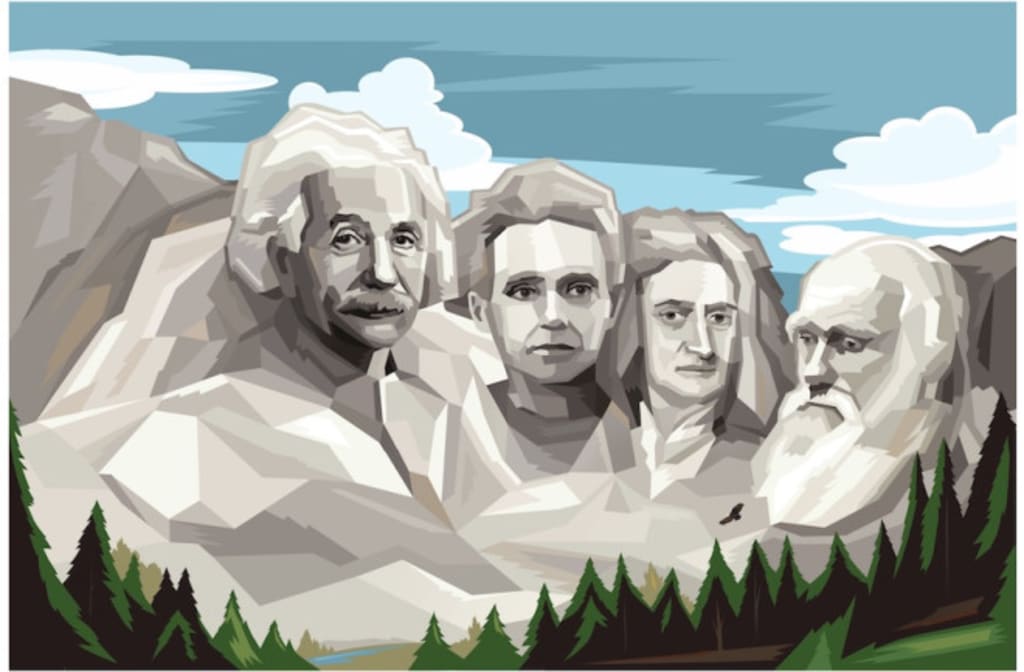
Throughout history, the world has seen many scientists who have revolutionized the way we understand the world around us. From physics to biology, these great minds have made groundbreaking discoveries that have shaped our knowledge of the universe. In this article, we will take a look at the top five greatest scientists of all time.
1.Albert Einstein
Albert Einstein was a German-born theoretical physicist who is widely considered to be one of the most influential scientists of the 20th century. He is best known for his theory of relativity, which fundamentally changed our understanding of space, time, and gravity. Einstein also made significant contributions to the development of quantum mechanics, statistical mechanics, and cosmology.
Einstein's most famous equation, E=mc², showed the equivalence of mass and energy, and laid the groundwork for the development of nuclear energy and the atomic bomb. Einstein was also an outspoken pacifist and civil rights advocate, and used his platform as a scientist to speak out against nuclear weapons and prejudice.
In 1921, Einstein was awarded the Nobel Prize in Physics for his explanation of the photoelectric effect. He was also awarded numerous other honors throughout his lifetime, including the Copley Medal from the Royal Society of London and the Franklin Medal from the Franklin Institute.
Einstein's work has had a profound impact on science and technology, and his name has become synonymous with genius and intellectual curiosity.
2.Isaac Newton
Sir Isaac Newton was an English mathematician, physicist, and astronomer who is widely considered to be one of the most influential scientists in history. He is best known for his three laws of motion and his law of universal gravitation, which together formed the basis for modern physics.
Newton's laws of motion describe how objects move and interact with each other, and his law of universal gravitation explains how all objects in the universe are attracted to each other based on their mass and distance. These ideas revolutionized the way we understand the world and laid the foundation for modern physics and engineering.
In addition to his work in physics, Newton was also a mathematician who developed calculus, a branch of mathematics that is essential to many areas of science and engineering. He also made significant contributions to the study of optics, including the discovery that white light is composed of different colors.
3.Galileo Galilei
Galileo Galilei was an Italian physicist, mathematician, and astronomer who is widely regarded as the father of modern observational astronomy. He made numerous important discoveries, including the moons of Jupiter, the phases of Venus, and the rings of Saturn. Galileo was also an advocate for the heliocentric model of the solar system, which placed the sun at the center instead of the earth. His support for this model brought him into conflict with the Catholic Church, which at the time held that the earth was the center of the universe.
4.Marie Curie
Marie Curie was a Polish-born physicist and chemist who made groundbreaking discoveries in the field of radioactivity. She was the first woman to win a Nobel Prize, and the first person to win two Nobel Prizes in different fields. Curie's work laid the foundation for the development of nuclear energy and the treatment of cancer.
5.Nikola Tesla
Nikola Tesla was a Serbian-American inventor, electrical engineer, and physicist who is best known for his work on alternating current (AC) electrical systems. Tesla was a prolific inventor who made numerous important contributions to the field of electrical engineering, including the development of the Tesla coil and the induction motor. He also made significant contributions to the development of wireless communication and radio technology.
In conclusion, the above-listed scientists have made groundbreaking contributions to various fields of science that have continued to shape our world today. From their discoveries, it is clear that science has no boundaries, and new discoveries will continue to be made in the future. Their work has inspired generations of scientists and will undoubtedly continue to do so for many years to come.
About the Creator
johnsonho
I am a content writer with a passion for personal health management.
I focus on writing articles, blog posts, and social media content for whoever wants to live a healthy lifestyle.





Comments
There are no comments for this story
Be the first to respond and start the conversation.